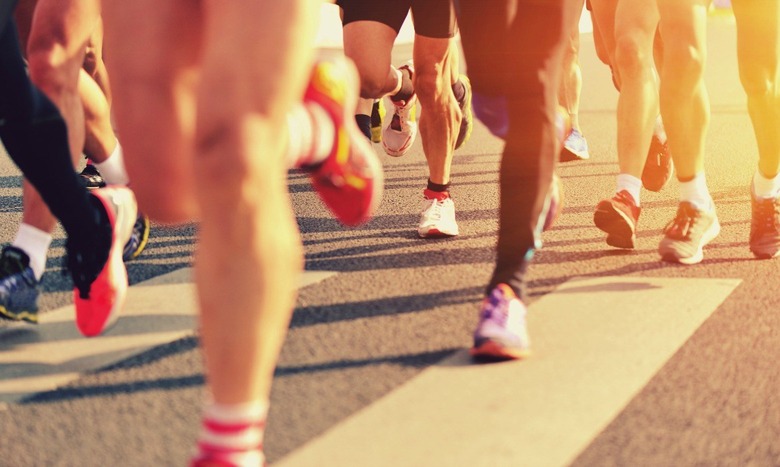Why Do People Carb-Load Before Marathons?
To be successful in a marathon, training, nutrition, and hydration are three health principles that every runner must abide by. Carbohydrates cover everything from fruits and vegetables to beans and yogurt, but carb-loading, usually refers to eating a lot of bread and pasta the night before a big race.
Click here for 13 Carbohydrates That Can Help You Lose Weight slideshow.
Just to clarify: carb-loading isn't some sort of marathon ritual that runners reward themselves with before running 26.2 miles. And they don't eat that way just to burn it off. As with everything else, there is a nutritional reasoning behind this.
"The night before a race is a critical time to maximize your glycogen stores, which is the energy stored in your muscles," said Amanda Foti, registered dietitian from Selvera. "You're going to want to plan on eating a high carb meal the night prior to ensure proper glycogen build up. You also want to avoid high fat consumption the night before. Our bodies can burn fat to use as energy however it is a less efficient fuel source. Studies show a high fat diet can decrease overall performance and decrease time to fatigue — meaning you hit the wall sooner. Keep the high carb meal healthy with fresh marinara sauce, pasta and bread, and a couple lean turkey meatballs."
"A lot of marathoners practice carb-loading throughout the week before [a race] by slowing introducing more carbs and taking out other foods. "People have a misconception about what carb-loading really is," said Monique Terrill, from Airbnb World Runners. "For me, carb-loading starts six days before the marathon and goes all the way to Friday. Then Friday and Saturday night, I reduce high proteins and focus on light carbs to be lighter on race day. On race day, I eat some bread with jam. This really happens the week before the big run, not the night before to properly stock up on energy."
Recovery is just as important as preparation, so Foti recommends loading up on protein and water immediately after the race. "I always encourage clients to have a protein bar nearby to consume after crossing the finish line," she said. "Lean protein and hydration is going to be needed to rebuild your muscle fibers in the days to come! Stay hydrated with at least 64 to 80 ounces of fluids daily and incorporate lean protein at each meal after the race."
The accompanying slideshow is provided by special contributor Sara Kay.
